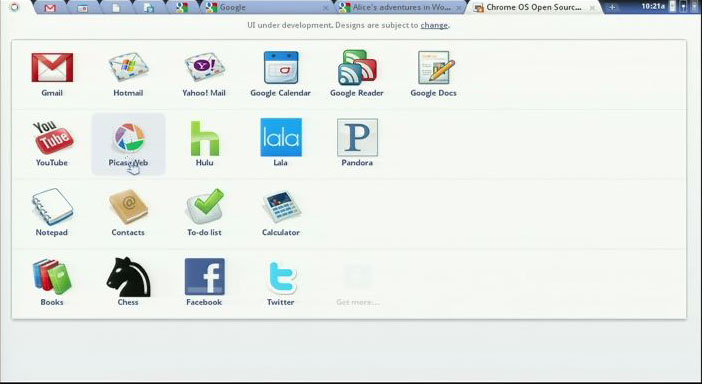64-bit Chromium OS surfaces
So your browser is really, really, really fast

A project that could bring an unofficial version of Google's Chrome OS to 64 bit computers has launched.
Using the Chromium OS code that has been open sourced by Google, the ChromiumOS64 project allows people who like a little more RAM to consider the new operating system/browser hybrid concept from Google.
"ChromiumOS64 is an unofficial port of the original Google's Chromium OS project (when officially released in 2010, it will be called Google Chrome OS) to the x86_64 64-bit architecture," explains the project lead Teo en Ming on the project website.
"The original Chromium OS project does not support 64-bit platforms. This is because the majority of the netbooks in the market are based on Intel Atom processors, which are mostly 32-bit."
2010 for official Chrome OS
Google's official Chrome OS release in 2010 will see it arrive on just netbooks, with the whole concept being that it allows low-power devices to quickly get online and utilise browser tools.
32-bit operating systems can only support up to 4GB of RAM, although this is normally limited to around 3.3GB, meaning a 64-bit OS is needed to fully take advantage of more memory.
Sign up for breaking news, reviews, opinion, top tech deals, and more.
Of course, with Google Chrome OS essentially just a browser with knobs on, 4GB and more is probably a little bit of overkill - which is presumably why Google is not undertaking a 64-bit project itself.
Download and instructions are on the ChromiumOS64 site, with all the normal caveats about TechRadar not being responsible for your computer / the download etc.

Patrick Goss is the ex-Editor in Chief of TechRadar. Patrick was a passionate and experienced journalist, and he has been lucky enough to work on some of the finest online properties on the planet, building audiences everywhere and establishing himself at the forefront of digital content. After a long stint as the boss at TechRadar, Patrick has now moved on to a role with Apple, where he is the Managing Editor for the App Store in the UK.